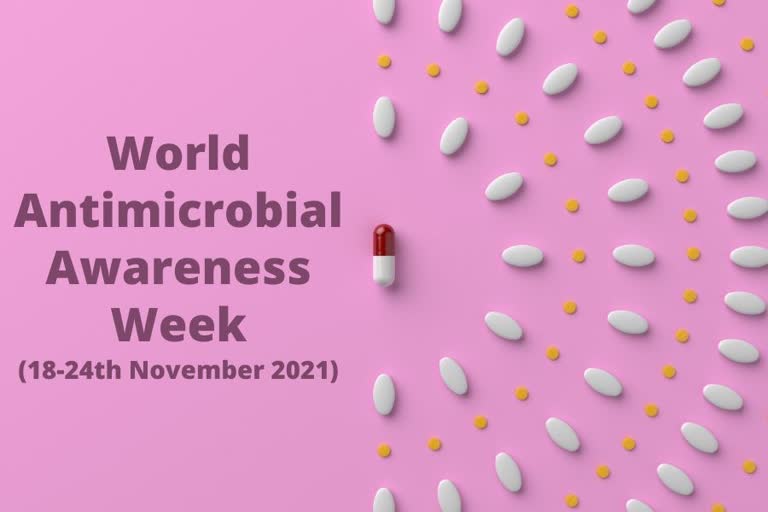Antimicrobials, which include antibiotics, antivirals, antifungals and antiparasitics are basically the medicines used to prevent and treat infections in humans, animals and plants, caused by the pathogens. Adding to this, Antimicrobial Resistance (AMR) is when these pathogens that have infected the body, do not respond to the medicines. This can result in making the disease spread faster, harder to treat becoming severe and even fatal. In other words, a person becomes resistant to the drug and the medicines are given show no effect, hence, making the disease difficult to treat.
Therefore, in order to spread more awareness worldwide about the Antimicrobial Resistance (AMR), a health threat and to encourage best practices among the general public, health workers and policymakers to slow the development and spread of drug-resistant infections, every year from 18th to 24th November, World Antimicrobial Awareness Week (WAAW) is observed. This year, the theme of the week is ‘Spread Awareness, Stop Resistance’.
“WAAW is an opportunity to draw attention to this urgent global health challenge. We need to spread awareness and stop resistance. By practicing responsible use of antimicrobials and by following the advice of your healthcare professional, you can help preserve antimicrobials and prevent drug resistance” says Dr. Tedros Adhanom Ghebreyesus, Director-General of WHO.
Why Is AMR Increasing?
